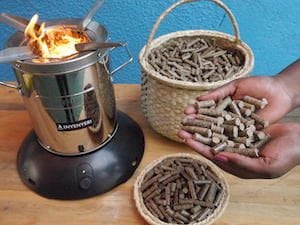
Agriculture
December 8, 2023
Inyenyeri Fuel Pellets
Read SolutionImplemented by
Inyenyeri
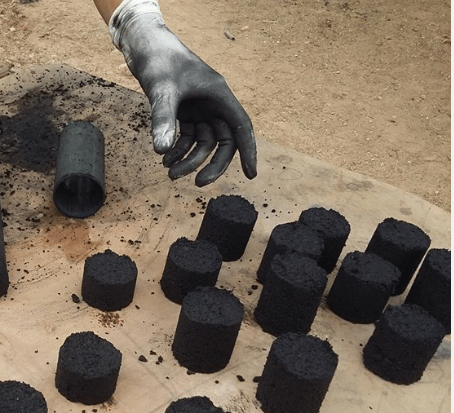
Updated on December 28, 2024
·Created on November 7, 2018
BioChar sells biochar and charcoal briquettes produced from the transformation of organic waste from greenhouse crops.
BioChar has developed two quick and inexpensive organic waste recovery systems. First, the company transforms organic waste from greenhouse crops (on farms less than 10 hectares) into biochar which is a useful biological amendment for soil regeneration that allows the retention of 50% of water and 50% of nitrogen. Secondly, they produce green coal briquettes for energy purposes.
This is an alternative to non-disseminated waste treatment systems in the villages in Agadir, in Morocco where biomass waste (mainly tomatoes and papers) is burned every year producing over 15,000 tonnes of CO2 emissions as over than 500 small farmers with less than 10 hectares of greenhouses do not have a landfill. Interview with representative
BioChar Maroc sells biochar for 1 USD/kg and charcoal briquettes for 0.5 USD. Logistics are the most costly operations for BioChar, especially when moving the raw material and transporting the final product to customers. Interview with representative
Target customers include:
– Greenhouse tomatoes and peppers producers/farmers
– Restaurants, hotels and individual cook
– Compost companies and farmers
Target SDGs
SDG 7: Affordable and Clean Energy
SDG 13: Climate Action
Market Suggested Retail Price
$1.00
Target Users (Target Impact Group)
Household, Small and Medium-sized Enterprises
Distributors / Implementing Organizations
BioChar Maroc
Countries
Morocco
Manufacturing/Building Method
Both products are produced through a process that includes collection agricultural byproducts, burning (pyrolyzing), carbonization, and pressing and compacting. BioChar used to compact manually, however, and along with local artisans, they built a machine to compact the charcoal briquettes.
Intellectural Property Type
Open-source
User Provision Model
Products and service are directly from the manufacturer, BioChar.
Distributions to Date Status
As of August 2018, over 100 units have been sold. Interview with the representative
Average daily biogas production (m3/day)
The aim is to have 450 kgs in the final per 1000 kgs (1 tone) of biomass. Interview with manufacturer
Description of waste source(s)
Organic waste (tomato and pepper) from less than 10 hectares greenhouse crops.
Waste input requirements (kg per hour or day)
1000 kgs (one tone) of biomass. Frequency unknown. Interview with representative
Design Specifications
To create the briquettes, BioChare uses a rectangular and compact biochar kiln with a capacity of 1000 kgs (1 ton) of biomass (mainly for tomatoes and peppers), a water tank (volume to be decided) and all connected with a proper piping system.
The kiln is going to be made of refractory iron and is going to be similar to the one designed by Chris Adams. Interview with representative
Technical Support
Provided by the manufacturer.
Replacement Components
Plastic tubes at the combustion chamber. Interview with representative
Lifecycle
Lifecycle and disposal directions for the kiln are unknown. Interview with representative
Manufacturer Specified Performance Parameters
BioChar aims to focus on the production of the product by deciding the specified volumes and packages for storage and distribution. As of August 2018, BioChar is working with a local tomato greenhouse company to build a biochar kiln that simultaneously heats a greenhouse. BioChar, however, needs the help of experts on thermodynamics to design the dual system. Interview with the representative
Vetted Performance Status
Biochar Maroc has produced 100 kgs of biochar from tomato biomass with their oven for the company Azura. They are now testing it on the soil and making the phytotoxic analysis.
Safety
Potential hazards regarding spontaneous combustion without proper storage and potential burns during the use of the charcoal briquettes. Guidelines provided by the manufacturer should be followed.
Complementary Technical Systems
None
Academic Research and References
There is no specific academic research about the BioChar Maroc product, however, Stolarski, et al. published the following review of similar charcoal briquettes:
Stolarski, M.J., et al., 2013, Comparison of quality and production cost of briquettes made from agricultural and forest origin biomass. Renewable Energy, 57, pp 20-26.
Compliance with regulations
The manufacturer claims to match the goals of the 2016-2030 National Sustainable Development Strategy in Marocco.Interview with representative
Evaluation methods
Phytotoxic analysis and testing of the impact of biochar on soil health is ongoing by the Azura company from Morocco. Interview with representative
Other Information
BioChar has participated in the 12th edition of Green Africa Innovation Booster, organized by the Solar Energy and New Energy Research Institute of Morocco (IRISEN) as well as in the 13th edition of the International Exhibition of Agriculture in Meknes (SIAM). BioChar was awarded as the second of three major innovations in the Clean Tech Innovation Challenge in Marocco.
Video of biochar and green carbon production process by BioChar Maroc.
2016-2030 National Sustainable Development Strategy in Marocco
Morocco sustainable development goal

Agriculture
December 8, 2023
Implemented by
Inyenyeri
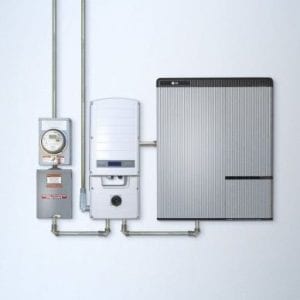
Agriculture
January 4, 2024
Implemented by
Sunrun
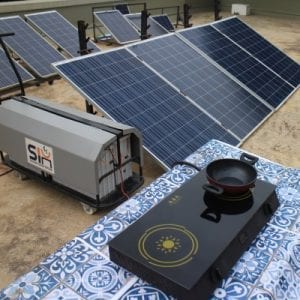
Agriculture
February 3, 2024
Implemented by
Solar Urja
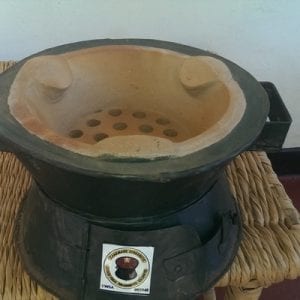
Agriculture
December 18, 2024
Implemented by
ADJR Cooperative

Agriculture
December 19, 2024
Implemented by
CLIMATENZA

Agriculture
June 22, 2024
Implemented by
Beijing Mobike Technology Co.,Ltd
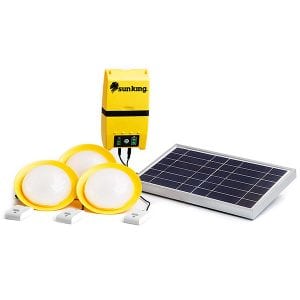
Agriculture
December 7, 2024
Implemented by
Sun King

Agriculture
January 10, 2024
Implemented by
Niwa
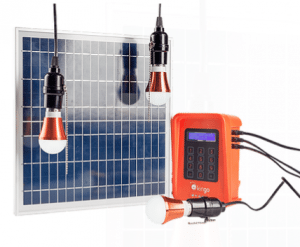
Agriculture
December 7, 2024
Implemented by
Kingo Energy

Agriculture
January 14, 2024
Implemented by
Niwa
Have thoughts on how we can improve?
Give Us Feedback